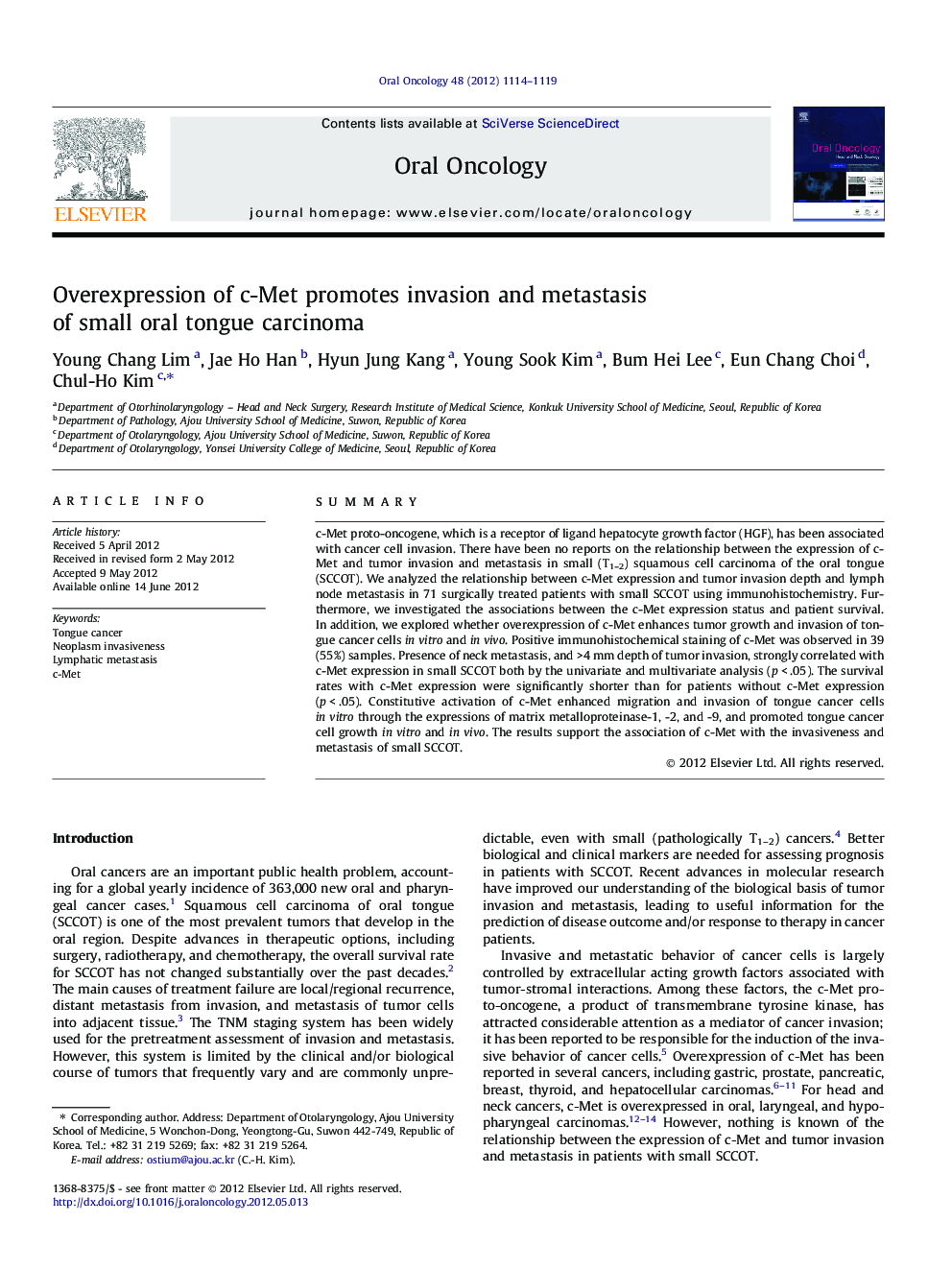| Article ID | Journal | Published Year | Pages | File Type |
|---|---|---|---|---|
| 6055098 | Oral Oncology | 2012 | 6 Pages |
Summaryc-Met proto-oncogene, which is a receptor of ligand hepatocyte growth factor (HGF), has been associated with cancer cell invasion. There have been no reports on the relationship between the expression of c-Met and tumor invasion and metastasis in small (T1-2) squamous cell carcinoma of the oral tongue (SCCOT). We analyzed the relationship between c-Met expression and tumor invasion depth and lymph node metastasis in 71 surgically treated patients with small SCCOT using immunohistochemistry. Furthermore, we investigated the associations between the c-Met expression status and patient survival. In addition, we explored whether overexpression of c-Met enhances tumor growth and invasion of tongue cancer cells in vitro and in vivo. Positive immunohistochemical staining of c-Met was observed in 39 (55%) samples. Presence of neck metastasis, and >4 mm depth of tumor invasion, strongly correlated with c-Met expression in small SCCOT both by the univariate and multivariate analysis (p < .05). The survival rates with c-Met expression were significantly shorter than for patients without c-Met expression (p < .05). Constitutive activation of c-Met enhanced migration and invasion of tongue cancer cells in vitro through the expressions of matrix metalloproteinase-1, -2, and -9, and promoted tongue cancer cell growth in vitro and in vivo. The results support the association of c-Met with the invasiveness and metastasis of small SCCOT.
